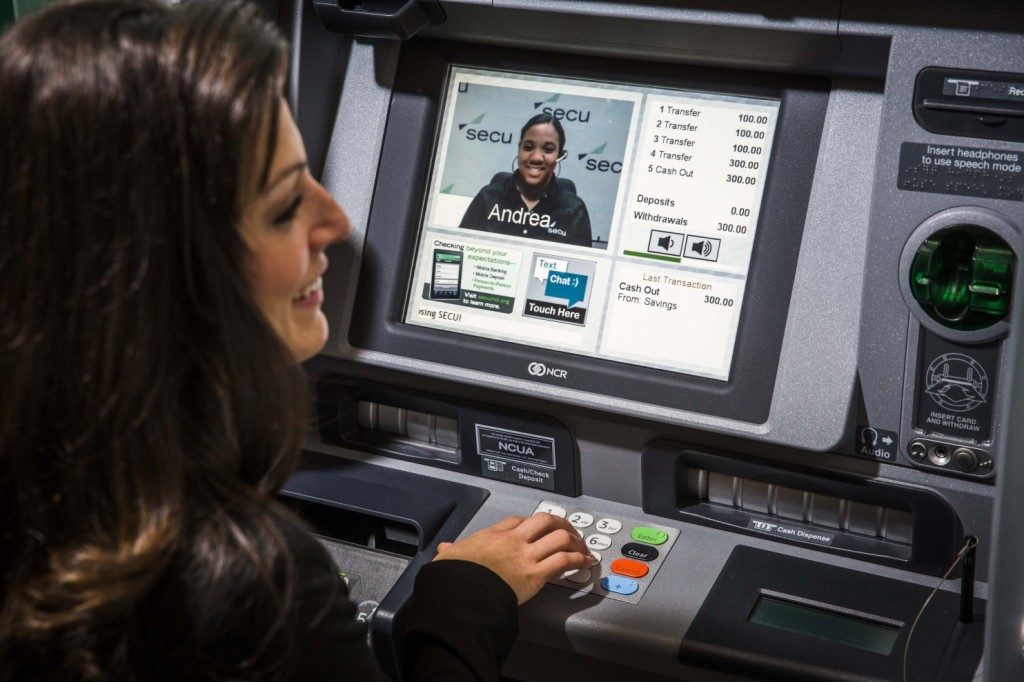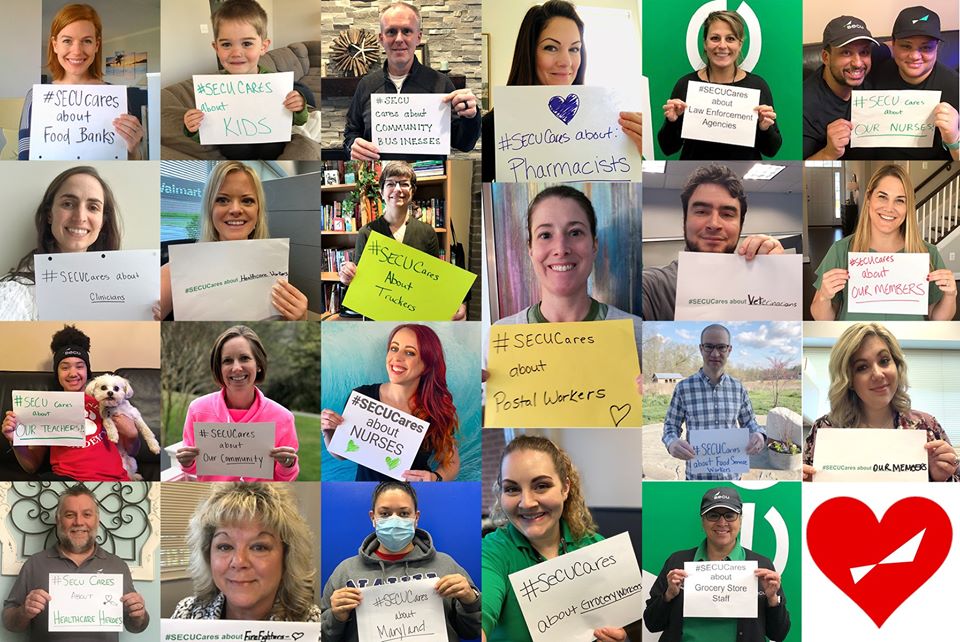At a time when COVID-19 is having profound implications on all aspects of daily life for people around the world, banks and credit unions, as front-line keepers of financial systems for consumers and small businesses, have a crucial role in ensuring the continued functioning of society. These financial services companies have had to continually adapt and provide real-time solutions for customers through the changing nature of the crisis.
While there has been a shift to digital in banking over the past several years, banks suddenly have to find ways to manage customer interactions differently, not as a nice-to-have but as the go-to strategy. The typically personal, and often in-person nature of interactions, put banks and credit unions in a unique position of service and adaptation that will influence relationships and customer experience expectations far into the future.
A conversation with Becky Smith, CMO of SECU

We’re going to discuss how SECU, Maryland’s largest credit union, is adapting to COVID-19 and what the long term implications of this response may be on customer experience going forward.
I know it’s a broad question, but how has the pandemic affected the consumers you serve?
We are seeing the effects on our members in many different ways, and it’s changing quickly as we’re responding. The first wave of behaviors were very reactive in response to the initial moves by state and local governments.
We definitely saw an increase in ATM cash withdrawals and calls to customer support. Our response was to inform members their money was safer in a bank or credit union and reassure them we would be here with them throughout the crisis.

More recently we have seen changes in what consumers are concerned about. There’s a new nervousness around financial security, mortgages, paying bills, job loss, and taking care of families, this has shifted the priorities of our response. We’re creating more instructional content for our members about how to manage things they would do in branch through our online or virtual channels. We’re also providing advice on how we’re here to help and to get in touch with us about financial issues or concerns before they feel overwhelmed.
“Our employees, who are experiencing similar concerns, have seen conversations shift from transactional to consultative in nature as they work to help our members manage through these times.”
Another tangible way we’re trying to help is with a new program offering hardship grants to our members who are really struggling as a result of COVID-19. We’ve committed $100,000 up front, and are offering to match member donations up to another $100,000. The idea of ‘people helping people’ is really amazing to witness first hand. In the first week, we’ve had over $25,000 in member donations to support other members.

How has COVID-19 changed the ways you work with consumers?
We have seen a lot of changes in how we work with our members both in-person and digital/virtual interactions. As banks and credit unions are deemed essential, we are remaining open to serve members. In order to protect members and employees, we have implemented additional safeguards in our branches in terms of distancing and sanitation. To help manage foot traffic, we have also moved to make in-person meetings appointment-based. Then before the appointment, our branch advisors reach out by telephone to consult with members to ensure they understand their service options and to see if there may be a different service channel for their needs. We have found this outbound calling approach is really appreciated by our members and helps to maintain the connection even if they don’t visit the branch.
We’re also very lucky that we implemented virtual tellers in all of our branches a few years back. Through a secure video system, our members are able to complete most of their branch transactions face-to-face without physical contact. Of course, we have seen volumes to our contact centers increase and have made changes to ensure we are meeting the needs and expectations of our members given the increased number of calls.
Interestingly, we haven’t really seen extreme changes in app usage or volume of traffic to our website. We need to understand this more, but it seems like the human connection is really important right now, even though that doesn’t necessarily mean in-person. This has a lot of implications of how we may need to adjust our digital strategies and approaches going forward.

How are customers responding to these changes you’ve made?
As a credit union, our customers are members and we are accountable to them in everything we do. Given the situation, it’s even more important for us to make sure we’re helping our members in every way we can. We regularly monitor customer interactions through our touchpoints, fortunately we haven’t seen changes to satisfaction metrics. Currently, our Net Promoter Score has been at or above our benchmarks. We’re also listening to conversations in social media and these remain positive. Along with the formal metrics, we’re hearing feedback from employees in branches and on the phones that members have been patient and understanding and expressed a sense that we’re all in this together.
“Given the situation, it’s even more important for us to make sure we’re helping our members in every way we can.”

What things are you doing now that are changing the customer experience that may be things you will continue to do?
The next normal, that’s what they’re calling it. Engagement and usage of our educational content has been astounding. This gives us the insight that it’s something our members are interested in and that they appreciate, we’re going to invest in it more. Everyone already gets so many emails, now even more, so we’re thinking about expanding the formats of how we engage with our members. We want to use more video as well as shorter-form, snackable content and even going old school by planning direct mail campaigns.
The outbound calling our branches are doing to assist members has been really effective and something we will do more of as well. We’re learning that high-touch doesn’t have to mean physically face-to-face, it does have to be natural and personal though. We also have to bring members along with changes and provide options, not forced choices.
“We’re learning that high-touch doesn’t have to mean physically face-to-face, it does have to be natural and personal though.”
Longer term, we’re evaluating how the things we’re learning can help us better serve members going forward. We are looking at services that traditionally haven’t been handled digital and asking the question, is there a better way to do this not just in a crisis but for our members going forward? There are huge lessons we can take from this in how we operate in the future.

Finally, working from home isn’t common in financial services, how has that adjustment been for your team?
It’s been an adjustment all right. Our technology team has done an amazing job getting everyone up and running out of the office. The physical distance has been a change for our team, especially because we really enjoy working and collaborating with each other. Like a lot of companies, we’ve made video a much bigger part of our lives in how we work together right now. We also are having informal get-togethers to make sure we check in and support each other, and have fun with things like virtual happy hours. I am so impressed with how our team is coping and really making an effort for our members.
Bottom line
The COVID-19 crisis has proven to be an immense test for people and organizations around the world. Accepting ambiguity and working with less than optimal information is a challenge under normal circumstances. It is truly remarkable how SECU, and other customer-centered organizations, have been able to adapt in real-time and continue to deliver experiences that help customers carry on with their daily lives. Almost more notable is the foresight that leaders, such as Becky Smith, have in recognizing the strategic areas for exploration as we move past the current crisis. Hero Digital would like to thank Ms. Smith for her time and insights.








